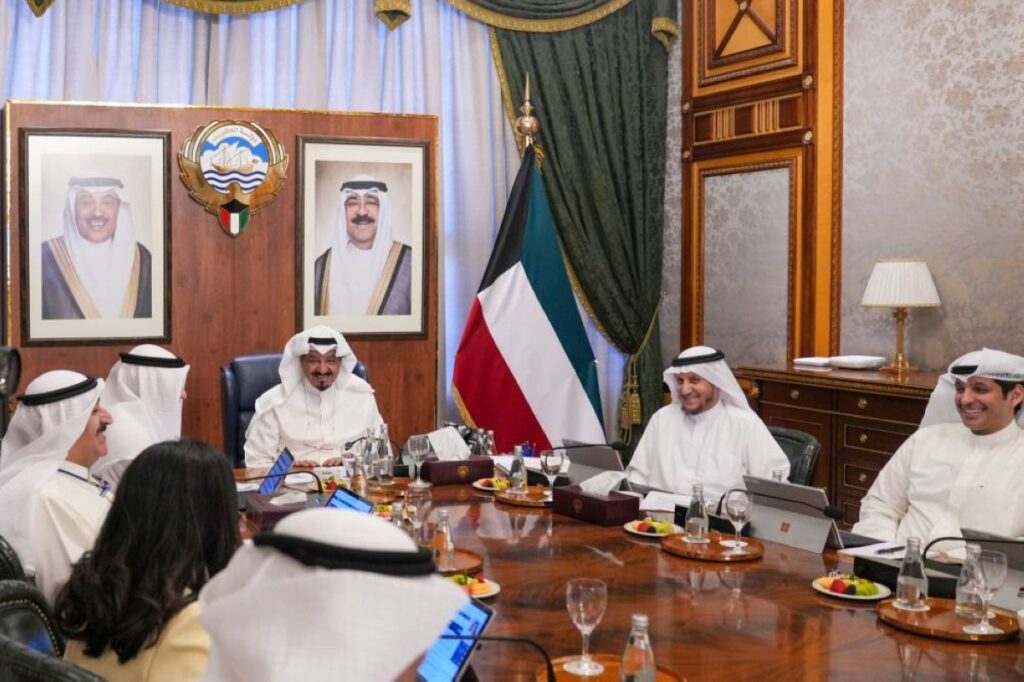Kuwait lifts Roblox ban • 73 accused of raffle manipulation • Expat ‘quotas’ on some firms
By B Izzak & Agencies
KUWAIT: The Cabinet on Tuesday approved a new draft anti-drugs decree-law that stipulates harsher penalties and expands the application of capital punishment against traffickers, during its weekly meeting held under the chairmanship of HH the Prime Minister Sheikh Ahmad Al-Abdullah Al-Ahmad Al-Sabah. The draft decree-law aims to merge law no. 74 of 1983 on combating drugs and regulating their use and trade with decree-law no. 48 of 1987 on combating psychotropic substances and regulating their use and trade.
The new law increases penalties, including the death penalty and heavy fines, for smugglers, dealers, promoters and those who engage in drug and psychotropic substance exchanges. The merger is expected to bring several benefits that enhance the protection of society from the harms of drugs and psychotropic substances. These include unifying concepts and terminology used in the field of combating drugs and psychotropic substances, as well as consolidating legal provisions related to crimes, penalties, and procedures to facilitate their application.
The Cabinet decided to refer the draft decree-law on combating drugs and psychotropic substances and regulating their use and trade to HH the Amir Sheikh Meshal Al-Ahmad Al-Jaber Al-Sabah for approval. First Deputy Prime Minister and Interior Minister Sheikh Fahad Al-Yousef Al-Sabah said on Sunday that efforts exerted by anti-drug forces have succeeded in cutting trafficking by 90 percent over the past 12 months. He added the clampdown on drugs has raised street prices seven- to eightfold.
Speaking at a diwaniya late Sunday, Sheikh Fahad Al-Yousef Al-Sabah said expat quotas are applied to some companies to prevent the monopoly of certain nationalities in those companies. The minister is the chairman of the Public Authority of Manpower, which handles all affairs related to the recruitment of expats from overseas.
Sheikh Fahad said HH the Amir is according top priority to the building of special cities to house large numbers of expat workers, especially those residing in Jleeb Al-Shuyoukh. Asked about reports that the government is
contemplating returning revoked citizenships, he said this matter is in the hands of HH the Amir. Kuwait has revoked the citizenship of over 50,000 people, a majority of them wives of Kuwaitis and those who were naturalized for their great services to the country. A number of citizenships were revoked because of forgery and cheating.
Meanwhile, the ban on Roblox has been lifted in Kuwait, and the popular gaming app is back with some restrictions on the chat features to provide better protection for users. The Communication and Information Technology Regulatory Authority (CITRA) had temporarily blocked Roblox in August 2025 citing its legal powers to protect users, especially children, noting that it acted on complaints regarding content deemed dangerous to children’s safety.
Separately, the public prosecution announced Tuesday that it has referred 73 defendants to the criminal court in connection with the commercial raffle manipulation case conducted under the supervision of the ministry of commerce and industry between 2021 and 2025. Cash and in-kind assets were seized as part of efforts to recover illicit proceeds in accordance with the law.
It added that the manipulation spanned 110 commercial raffles offering prizes such as cars, cash and gifts worth a total estimated value of KD 1.244 million. The investigation was carried out by a specialized team of prosecutors, which revealed an organized criminal network that manipulated raffle results and compromised the fairness of the process by exploiting public positions and weaknesses in oversight to gain illicit financial benefits shared among its members.
The prosecution stated that “these acts were committed within a complex criminal structure characterized by planning and coordination, aimed at unlawfully seizing raffle prizes through systematic fraudulent practices involving deception and misrepresentation — constituting a grave breach of the principles of transparency and integrity established by law”.
It further noted that the defendants’ roles were complementary, using forged official documents and fictitious transfers through which prizes were redirected to the true beneficiaries in exchange for direct or indirect payments in the form of bribes, mediation or other financial benefits derived from their crimes. The investigation also showed that proceeds from these crimes were reinvested in various financial transactions deliberately structured to conceal their illicit origin and evade legal scrutiny.
On March 27, the prosecution had ordered the detention of a Kuwaiti citizen and five expatriates following intensive investigations that uncovered their involvement in “serious crimes” which shocked public opinion, including forgery of official documents, bribery of public officials, embezzlement of state-held funds, and money laundering.
It added that these decisive measures followed social media reports alleging the involvement of a public employee at the ministry of commerce and industry who supervised raffles for the Kuwait Shopping Festival (Ya Hala). On March 28, Public Prosecutor Counselor Saad Al-Safran ordered that investigations into the festival raffle case be kept confidential and banned the publication of any related news or statements.
Separately, Kuwait Anti-Corruption Authority (Nazaha) announced Tuesday that it had referred more than 30 individuals subject to the financial disclosure law to the public prosecution for failing to submit their financial disclosure statements within the legally prescribed deadlines. Nazaha called on all individuals subject to financial disclosure requirements to fully comply with accuracy and transparency when completing and submitting their statements on time. It emphasized that this is both a legal and moral obligation that contributes to protecting public funds, strengthening integrity and enhancing public trust in state institutions.

